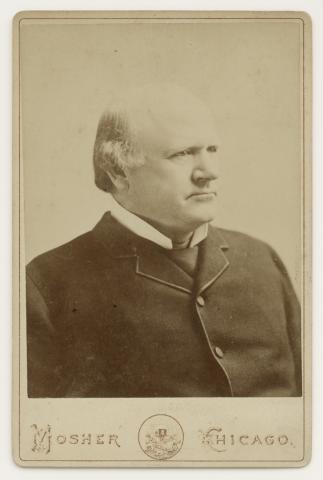
John Marshall Harlan (1833–1911)
A civil rights champion, Justice John Marshall Harlan was the only dissenter in the “separate but equal” Plessy v. Ferguson (1896), which ruled that racial segregation was legal. Later, in 1901, Harlan dissented in Downes v. Bidwell, which reoriented the future of U.S. territorial policy. In this case, the Supreme Court majority concluded that the trade tariffs in the Foraker Act were constitutional because Puerto Rico was not “in the United States,” and therefore it was considered “foreign in a domestic sense.” Puerto Rico was consequently designated an “unincorporated” territory, a new legal distinction crafted by the Court providing that the Constitution was not immediately applicable to the territory.
In a series of concurrent cases, collectively known as the Insular Cases, this new territorial policy was also extended to the Philippines and Guam. Downes v. Bidwell continues to be the most consequential precedent in Supreme Court cases involving U.S. territorial policy.
Audio Transcription: The controversy in Downes v. Bidwell in 1901, involved a few hundred dollars’ worth of oranges that were being brought into Puerto Rico. Tariffs under the U.S. Constitution have to be uniform across the states. Now, the Supreme Court here decided that tariffs need not be uniform in the U.S. territories. How are the insular cases relevant today? Presently, these continue to permit the federal executive and legislative branches to treat United States territories-- and more important, the U.S. citizens who inhabit them-- disparate. For example, I reside in Puerto Rico and because I'm a U.S. citizen residing in a territory, I cannot cast a vote for the president of the United States in general elections. Citizens in the territories also are not automatically entitled to a civil jury trial, nor indictment by grand jury, and these are provisions that apply to citizens in the States. At the time of Justice Harlan's dissent, his view of the Insular Cases was only shared by two legal scholars. However, over the past half century many other judges and academics have joined Harlan's view, including quite recently, Sonia Sotomayor and Neil Gorsuch of the United States Supreme Court. Incredibly, a few hundred dollars' worth of oranges for the last 120 years have determined the constitutional rights of U.S. citizens in the territories.
– I am Judge Gustavo A. Gelpí. I'm a United States circuit judge for the Court of Appeals for the First Circuit.